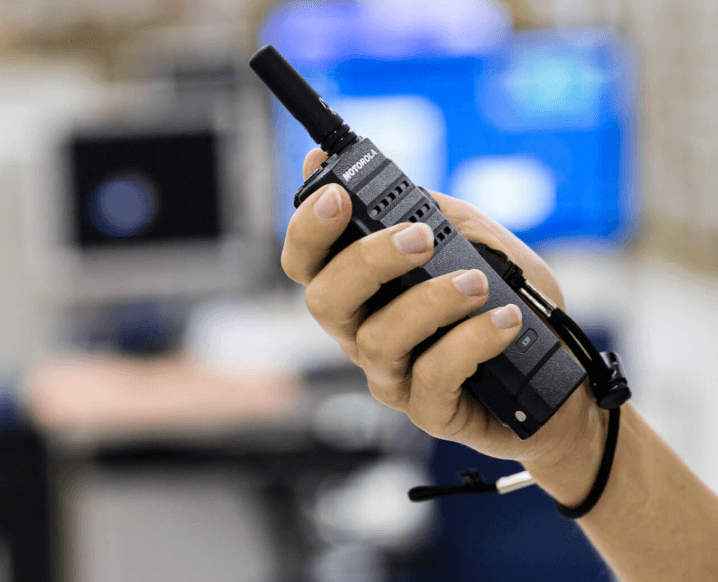Share
What are walkie-talkie batteries?
Two-way radio batteries are batteries specially designed for use in two-way radios, also known as walkie-talkies. They can be made from different types of chemistry, such as lithium ion, nickel cadmium, or nickel metal hydride. The size and capacity of the battery varies depending on the radio model. It is important to use the correct battery for your specific radio model to ensure safe and efficient battery operation.
What types of walkie-talkie batteries are there?
There are different types of batteries that can be used in walkie-talkies, each with their own unique features and benefits. Here are some of the most common:
- Nickel-Cadmium (NiCad) batteries: These batteries are affordable and easy to find, but have a lower energy density than some other types of batteries.
- Nickel-Metal Hydride (NiMH) batteries: These batteries have higher energy efficiency than NiCad batteries and do not require charging cycles to maintain their capacity.
- Lithium-Ion (Li-Ion) batteries: These batteries are more expensive, but have the highest energy density of all battery types. They also have a longer lifespan and do not require charging cycles.
- Lithium-Polymer (Li-Po) batteries: These batteries are lightweight, flexible, have a high energy density and a long service life.
- Alkaline batteries: These batteries are cheap and easy to find, but have a lower energy density than some other types of batteries and a shorter lifespan.
It is important to choose the correct battery for your specific radio model to ensure that the battery functions safely and efficiently.
How often should you replace two-way radio batteries?
It is difficult to give a specific answer to how often you should replace your two way radio batteries as it depends on a number of factors such as the type of battery, how often you use the two way radio, and how much power the two way radio uses.
If you use NiCad or NiMH batteries, they will probably last about a few months if you use the radio regularly. Lithium-ion and Lithium-Polymer batteries usually have a longer service life, and can last several months or even a year. Alkaline batteries often have the shortest lifespan.
It is important to check the batteries regularly and replace them as soon as they become weak. You can do this by measuring the battery voltage with a multimeter or by replacing the batteries when the radio's performance drops.
It is also recommended to store the batteries in a dry and cool environment, and to charge the batteries according to the manufacturer's instructions. This can extend the life of the batteries.
How do walkie-talkie batteries work?
Walkie-talkie batteries work by storing electricity in a chemical cell, which can then be used to power the walkie-talkie. The chemical reaction that takes place in the cell generates electricity that is used to operate the radio.
There are different types of chemistry used in two way radio batteries, such as nickel-cadmium (NiCad), nickel-metal hydride (NiMH), lithium-ion (Li-ion), Lithium-Polymer (Li-Po) and Alkaline. Each chemistry has its own unique properties and benefits, such as higher energy density, longer life, or easier to find.
When a radio is turned on, power flows from the battery to the radio. The current is used to activate the receiver and transmitter, and to operate the microphone and speaker. The current used, depending on how much power the radio consumes.
When a battery is empty, it must be replaced or charged, depending on the battery type. With some batteries, such as lithium-ion and lithium polymer, it is not necessary to “discharge” the batteries before charging. Other batteries, such as nickel-cadmium, require the batteries to be discharged before charging to maintain capacity.
How long do walkie-talkie batteries or accumulators last?
It is difficult to give a specific answer to how long radio batteries or accumulators last, because it depends on a number of factors, such as the type of battery or accumulator, how often the radio is used, and how much power the radio consumes.
If you are using Nickel-Cadmium (NiCad) or Nickel-Metal Hydride (NiMH) batteries, they will probably last about several months if you use the radio regularly. Lithium-ion (Li-Ion) batteries usually have a longer service life and can last several months or even a year. Alkaline batteries often have the shortest lifespan.
It is important to check the batteries or accumulators regularly and replace them as soon as they become weak. You can do this by measuring the battery voltage with a multimeter or by replacing the batteries or accumulators when the radio's performance decreases.
It is also recommended to store the batteries or accumulators in a dry and cool environment, and to charge the batteries or accumulators according to the manufacturer's instructions. This can extend the life of the batteries or accumulators.
Quotation or buy walkie-talkie batteries directly?
View examples of previous awards here all the batteries or contact us for a custom quote.
